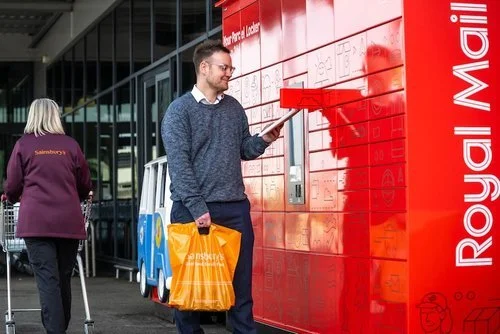How retailers can stay ahead in the age of digital transformation
The retail industry is at the forefront of rapid technological advancement, requiring businesses to continuously adapt in order to remain competitive. Digital transformation is reshaping how retailers operate, interact with customers, and manage their supply chains.
With consumers increasingly expecting seamless and personalised experiences, retailers must invest in modern solutions to streamline operations, enhance customer engagement, and improve profitability.
From adopting cloud-based systems to leveraging remote access technologies, there are several strategies that can help retailers thrive in this digital age.
The impact of digital transformation on retail operations
Digital transformation has become a driving force behind significant improvements in retail operations.
Automating processes, streamlining supply chain management, and integrating data analytics tools allow retailers to make smarter, faster decisions. Through the use of digital solutions, retailers can track customer preferences, optimise inventory, and reduce waste - all of which contribute to more efficient operations.
Retailers who have embraced digital transformation are also better equipped to handle fluctuating market demands. By implementing data driven systems, businesses can predict customer behaviour and adjust their operations accordingly. This is particularly valuable during peak sales periods or promotional campaigns, where speed and accuracy are crucial.
Moreover, digital transformation enables greater transparency across all levels of the retail supply chain. From manufacturers to customers, retailers can share real-time information about stock levels, order tracking, and delivery schedules, improving overall efficiency and customer satisfaction.
The role of remote access in modern retail strategies
As the retail industry embraces digital transformation, remote access solutions are becoming integral to modern business strategies.
TSplus Remote Access, for instance, provides a practical solution for retailers seeking to web-enable their business applications hosted on internal or cloud-based servers. This capability allows retailers to access critical applications securely, from any location, without needing complex, costly infrastructure.
Retailers seeking an alternative to Citrix will find that solutions like TSplus offer the same core benefits, such as secure remote access, but at a more affordable cost. By choosing a Citrix alternative, businesses can maintain operational efficiency while reducing IT expenses.
These solutions are especially useful for businesses with multiple locations or those that rely on distributed teams, allowing employees to access company systems without being physically present.
The flexibility provided by remote access solutions ensures that retailers can continue operating efficiently, even during disruptions or unplanned events.
For example, during a pandemic or natural disaster, retailers equipped with TSplus Remote Access can maintain business continuity by allowing employees to work from home or other remote locations. By adopting a Citrix alternative, retailers can ensure that they have the necessary tools to stay agile in an unpredictable market.
Leveraging cloud-based solutions for seamless retail management
Cloud-based systems have revolutionised the way retailers manage their operations.
By centralising data storage and processing, cloud solutions offer retailers greater flexibility and scalability. Businesses can easily access their data from anywhere, allowing them to manage multiple locations, streamline inventory, and offer a seamless customer experience across physical and digital platforms.
For example, cloud-based Point of Sale (PoS) systems enable retailers to track sales in real-time, while customer relationship management (CRM) software allows them to maintain a comprehensive view of customer interactions. This unified approach ensures that retailers can respond to customer needs promptly and efficiently, without being tied to outdated hardware or software systems.
In addition, cloud-based systems reduce the need for costly IT infrastructure and maintenance. By hosting business applications in the cloud, retailers can focus on core activities, confident that their systems will remain secure and up-to-date. This has been particularly beneficial for businesses that need to scale quickly, such as during seasonal sales events or when expanding into new markets.
Enhancing customer experience with cutting-edge technology
Retailers today must offer more than just products - they need to deliver memorable and engaging customer experiences. Digital tools are making it easier for retailers to personalise their interactions with customers and deliver relevant recommendations based on purchasing history and browsing behaviour.
Artificial intelligence (AI) and machine learning (ML) technologies are playing a key role in transforming the customer experience. For example, AI powered chatbots can assist customers in real-time, answering questions, guiding them through the buying process, and even providing personalised product suggestions. This creates a more interactive and satisfying shopping experience, both online and in-store.
In physical retail spaces, augmented reality (AR) and virtual reality (VR) are being used to enhance customer engagement. These technologies allow customers to virtually try on products or see how items might look in their homes before making a purchase.
Such innovations not only increase customer satisfaction but can also reduce returns, thereby improving profitability.
Building a scalable IT infrastructure for retail success
A scalable IT infrastructure is essential for retail businesses looking to grow and adapt to changing market conditions. Retailers need systems that can handle increased demand during busy periods without compromising performance or customer experience. This is where flexible IT solutions become crucial.
By adopting modular and scalable systems, retailers can add new functionalities, integrate third-party software, and expand their operations without the need for costly overhauls. Cloud-based platforms and remote access solutions are especially valuable here, allowing retailers to quickly adjust to changes in business needs.
Retailers also benefit from building an IT infrastructure that supports data driven decision-making.
Advanced analytics tools can process vast amounts of data in real-time, helping businesses identify trends, make accurate forecasts, and respond quickly to opportunities or challenges. A well structured IT foundation not only supports business growth but also ensures operational resilience in an increasingly competitive market.
Reducing operational costs through efficient tech integration
For retailers, integrating technology effectively is key to reducing operational costs and improving profitability. By automating repetitive tasks and centralising data management, businesses can streamline their workflows, reducing the need for manual labour and improving accuracy.
For instance, using inventory management software can significantly reduce stock-related errors, such as over-ordering or under-stocking. This not only reduces waste but also helps retailers avoid missed sales opportunities due to inventory shortages. Similarly, automating customer service functions through AI powered chatbots can lower staffing costs, while still delivering high quality customer support.
Energy-efficient technologies and smart systems are also helping retailers cut down on operating expenses. Automated lighting, heating, and cooling systems that adjust based on real-time data can lead to significant savings in energy costs, which is particularly beneficial for larger retail spaces or businesses with multiple locations.
How retailers can future-proof their business in a competitive market
Future-proofing is essential for retailers looking to maintain a competitive edge. The fast pace of digital transformation means that businesses must continuously evolve to meet new customer expectations, technological advances, and market conditions. By investing in scalable, adaptable systems, retailers can stay prepared for whatever comes next.
One critical aspect of future-proofing is the ability to analyse and respond to data trends. Retailers that harness the power of Big Data can stay ahead of shifts in customer behaviour and make informed decisions about product offerings, marketing strategies, and operational improvements. This level of insight allows businesses to stay agile and competitive, even as market conditions change.
Another important strategy is to focus on creating a flexible workforce. Retailers that provide their teams with remote access tools, training, and resources will be better equipped to manage sudden shifts in business operations, such as those caused by economic downturns or unexpected disruptions.
Retailers who adopt alternative solutions like TSplus Remote Access can reduce reliance on expensive, complex systems, allowing them to stay nimble in the face of change.































Continue reading…